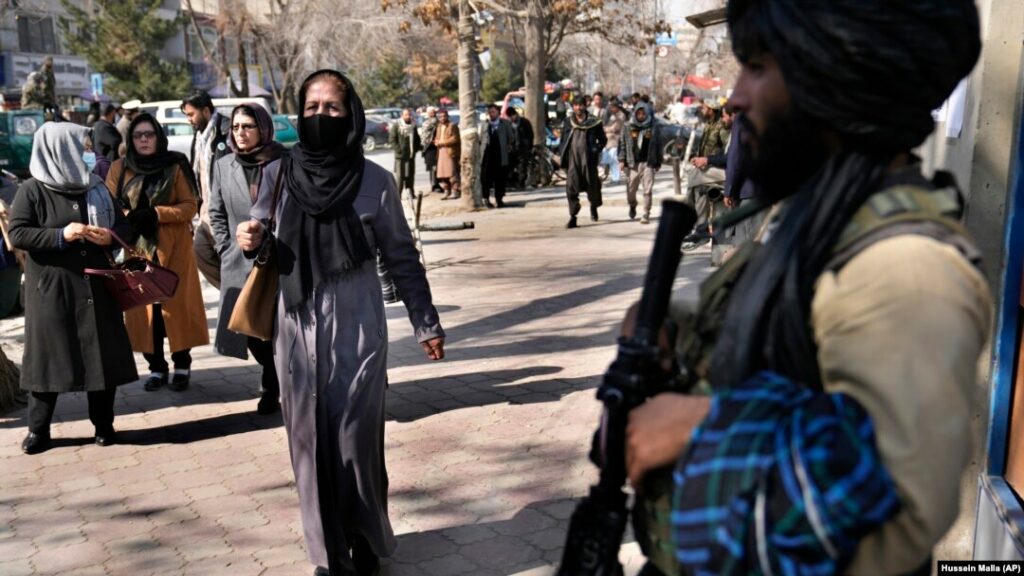The Taliban administration in Afghanistan has recently issued an order demanding the closure of beauty salons across the country within a month. This move further restricts Afghan women’s access to public places, continuing the trend of limiting their freedom and opportunities.
According to Mohammad Sadiq Akif, spokesperson for the Ministry for the Prevention of Vice and Propagation of Virtue, the deadline for the closure of beauty parlours for women is set at one month. This announcement was made on Tuesday, referring to a notice from the morality ministry.
The decision to close down beauty salons adds to the growing list of restrictions imposed by the Taliban on women’s rights and freedoms. The move is seen as part of the Taliban’s efforts to enforce their strict interpretation of Islamic law, which often suppresses women’s participation in public life.
This latest development raises concerns among advocates for women’s rights in Afghanistan, who fear that these restrictions will severely limit women’s access to economic opportunities and personal expression. Beauty salons have been vital spaces for Afghan women to earn a livelihood and express their creativity, serving as important hubs for social and professional interaction.

Impact on Afghan Women and Society
The closure of beauty salons will have a profound impact on Afghan women and society as a whole. By depriving women of these spaces, the Taliban is effectively restricting their ability to engage in economic activities and contribute to the development of their communities.
Afghanistan has made significant strides in recent years towards promoting gender equality and empowering women. The closure of beauty salons represents a significant setback in these efforts, undoing the progress made and further marginalizing women within Afghan society.
The Taliban’s strict enforcement of their interpretation of Islamic law perpetuates gender inequality and limits women’s freedom to pursue their aspirations. It sends a clear message that Afghan women are not valued as equal members of society and are subject to arbitrary restrictions on their personal and professional lives.
In addition to economic implications, the closure of beauty salons also has social and psychological effects. These spaces have served as sanctuaries for women, offering them a sense of community, empowerment, and self-expression. By closing down these establishments, the Taliban is diminishing these vital sources of support and connection for Afghan women.
International Concerns and Calls for Action
The Taliban’s decision to close beauty salons has sparked international concern and prompted calls for action to protect women’s rights in Afghanistan. Human rights organizations, governments, and activists worldwide have condemned these restrictions and urged the international community to intervene.
Many argue that the international community should use its diplomatic and economic leverage to pressure the Taliban to respect women’s rights and ensure equal opportunities for all Afghan citizens. Advocates call for continued support for Afghan women, including providing resources and safe spaces for them to pursue their aspirations outside of traditional gender roles.
In conclusion, the Taliban’s order to close beauty salons within a month represents yet another blow to Afghan women’s rights and freedoms. This decision not only limits their economic opportunities but also undermines their social connections and personal expression. The international community must stand in solidarity with Afghan women, demanding that their rights be protected and advocating for gender equality in all aspects of Afghan society.
